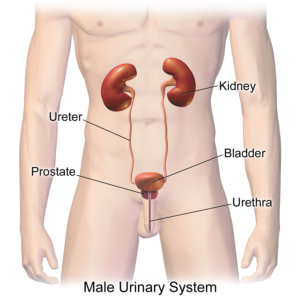 Over the past decade there has been as increasing amount of research suggesting that the herpes virus (cold sores!) is implicated in the development of Alzheimer's disease. (here, here, here).
Over the past decade there has been as increasing amount of research suggesting that the herpes virus (cold sores!) is implicated in the development of Alzheimer's disease. (here, here, here).
A recent study suggests the same possibility - herpes simplex 1 (HSV-1) has a role in the development of Alzheimer's disease. And treating cold sores with antiviral therapy (antiherpetic medications) results in a reduced risk of developing Alzheimer's disease - thus the antivirals are protective.
The researchers found that having herpes virus type 2 (genital herpes) and varicella zoster virus (chicken pox, shingles) also resulted in increased risk of later developing Alzheimer's disease. But infection with cytomegalovirus was not.
From Medical Xpress: Cold sore viral infection implicated in development of Alzheimer's disease
Symptomatic infection with the virus responsible for cold sores around the mouth–herpes simplex 1, or HSV-1 for short—may have a key role in the development of Alzheimer's disease, suggests a large US study published in BMJ Open. ...continue reading "Herpes Simplex Virus and Alzheimer’s Disease"

 Exercise boosts brain function at all ages. This means that for both young and old, it is worth it to get out and engage in physical activity.
Exercise boosts brain function at all ages. This means that for both young and old, it is worth it to get out and engage in physical activity.
 It's a sad fact, but Americans, even the richest ones, have a shorter life-span than their counterparts in Europe. A
It's a sad fact, but Americans, even the richest ones, have a shorter life-span than their counterparts in Europe. A Remember when for years eating eggs was viewed as unhealthy? And people were told to only eat egg whites? Well, well... how views have changed. Another recent
Remember when for years eating eggs was viewed as unhealthy? And people were told to only eat egg whites? Well, well... how views have changed. Another recent  Many people to this day avoid eating nuts because they view them as high calorie and high fat (umm...probably because the medical establishment said that for years). However, studies in the past decade repeatedly found that frequent nut consumption has health benefits.
Many people to this day avoid eating nuts because they view them as high calorie and high fat (umm...probably because the medical establishment said that for years). However, studies in the past decade repeatedly found that frequent nut consumption has health benefits. Pesticides are once again in the news as being linked to cancer. A recent
Pesticides are once again in the news as being linked to cancer. A recent  Earlier studies also found a link with some of the pesticides and prostate cancer, including 2,4-D. But this study found a link with 19 more.
Earlier studies also found a link with some of the pesticides and prostate cancer, including 2,4-D. But this study found a link with 19 more.